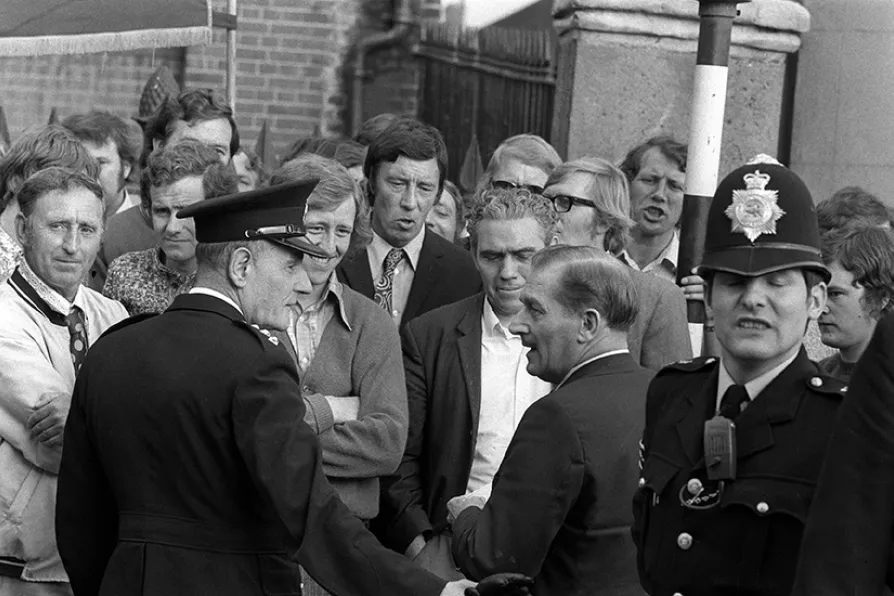ROGER McKENZIE looks at how US doublespeak on the ‘war on drugs’ is used to camouflage its intended grab for of Latin America’s natural resources
Remember the Pentonville Five, when workers' solidarity shook the system
ROGER SUTTON reflects on the mass action that freed imprisoned dockers on this day in 1972, which is to be commemorated later this year in an event drawing parallels with the struggles of workers today

 Vic Turner (left) being escorted into Pentonville Prison by the High Court Tipstaff (balding, back to camera) after his arrest. He had earlier appeared in the dockers' picket line outside the prison. Turner was one of five dockers committed to prison for contempt by the National Industrial Relations Court on the 21 July 1972
Vic Turner (left) being escorted into Pentonville Prison by the High Court Tipstaff (balding, back to camera) after his arrest. He had earlier appeared in the dockers' picket line outside the prison. Turner was one of five dockers committed to prison for contempt by the National Industrial Relations Court on the 21 July 1972
IN the blazing of summer of 1972 mass working-class action forced the release of the five docker shop stewards.
In the last week of July, the action being taken by workers reached its highest point and, as a massive march reached Pentonville prison in north London on July 26, the gates of the grim Victorian jail were opened and let out the five.
Workers had been walking off jobs across the country. Solid strike action had turned over the ruling-class attempt to smash unions.
Similar stories

LYNNE WALSH previews the Bristol Radical History Conference this weekend

From anti-apartheid work to uniting migrant workers, Sutton showed us how to build worker power, keeping socialism’s flame burning bright, and leaving London’s mighty May Day parade as his legacy, writes Phil Katz

JOHN GRAVERSGAARD recommends a study of trade union organising that brings together exemplary lessons from the Uk and Kenya











